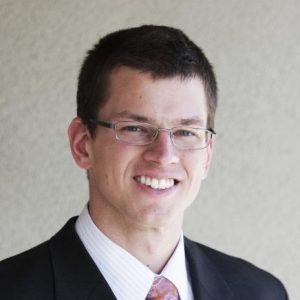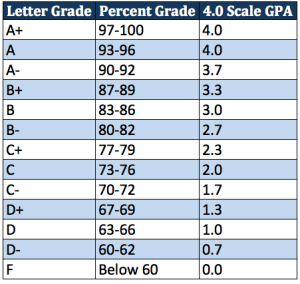 On Take Your Success, I regularly interview top-performers to understand how they’re successful, so you can recreate the success in your life. Take what’s helpful, dismiss what’s not!
On Take Your Success, I regularly interview top-performers to understand how they’re successful, so you can recreate the success in your life. Take what’s helpful, dismiss what’s not!
This week’s interview is different. Instead of the custom question-and-answer with a college student, I interviewed a doctor. His name is Dr. David Puder.
Dr. Puder went to undergrad at the University of California, Berkeley and then went on to medical school at Loma Linda. He is going to comment on the road to medical school and what he learned. He answers anything from study tips for the Medical College Admission Test (MCAT) to paying for med school.
Also, Dr. Puder is truly amazing at connecting with people. He uses his emotional intelligence to build trust with friends and strangers. I experienced his emotional intelligence, at first as a stranger, when I met him last summer.
It’s interview time.
——
Brian: How did you study for the MCAT? What study methods worked and didn’t work for you?
Dr. Puder: I took the MCAT in the August of the summer before my senior year and studied for 5 weeks. I also applied that summer. I think it would have been better to do it in the spring but I was very busy with rowing so I did not have time. I took a review course and did a lot of questions. I made it a point to spend time going over the questions I missed in detail. I tried to summarize notes from the core sciences and put in stuff from the questions I forgot. I wish I had done this from day one of the science classes (make one page note for each lecture) as I did this in medical school and did very well on step one and two.
I had a stop watch and recorded the actual study time until I hit 8 hours a day. Every time I picked up my phone or did anything like go to the bathroom I would stop the stop watch. This sobering experience of actually knowing how much work I was doing helped me start each day early and then have time in the evening for exercise.
Brian: Besides the required science classes, are there other courses in college that can help you with the MCAT, medical school, or practicing as a doctor?
Dr. Puder: To apply to medical school you have to take certain classes but do not need to major in biology. I actually did not take any extra science classes then I needed for my major and admissions (not even anatomy or physiology). I was so passionate about the humanities and found great joy in learning about philosophy, Russian Literature, history, and many other things! I highly recommend you to follow your curiosity. The world needs more people who are passionate and everything you learn will apply to medicine in some way. Follow your curiosity.
Brian: From your experience, what do medical school admissions officers think about when they consider an applicant?
Dr. Puder: They of course look at grades and MCAT but also are very interested in recruiting researchers and humanitarians. They want to see how you relate and connect to other people, which is sometimes hard to quantify from just your activity list. Likely if you have things that you really poured yourself out into while in school it will speak to your curiosity and passion for life.
Brian: What helped you do well in med school?
Dr. Puder: I tell people interested in medical school I studied from 8am to 10pm. I got up at 6:30, was out the door in 5 minutes for a 30 minute jog, and then got to class by 8am. Exercise kept my mind sharp (Read “Spark” by Dr. Ratey for all the mental health benefits). I took off Friday night and Saturday night and Sunday AM. I had 2 mentors I met with weekly who were older doctors. I ate heathy food which helped me focus as well (I recommend high omega-3’s, veggies and complex carbs for optimal brain function).
Brian: Please share any advice for financing this extra schooling.
Dr. Puder: There are several ways to fund grad school. Go into school living on a tight budget Dave Ramsey—style. When you are a medical student—live like a student, when you become a resident, still live like a student, and when you become an attending, unless you have a plan to help you get it paid for, continue to live like a student until it is paid off. There are certain debt forgiveness programs for people who want to go into primary care. The military will pay for your education, if you work for them for four years after graduation.
(Brian here: Joining the military is one of four different ways to get your loans forgiven. I detail the others in this post on how to fund graduate school.)
Brian: What’s your current job and its responsibilities?
Dr. Puder: I am a psychiatry attending at Loma Linda University where I do outpatient mental health treatment (therapy and medication management) and am a medical director for a program that helps patients with physical and psychological issues. I also work at La Sierra University in the student clinic once a week. Once a month I cover for the inpatient psychiatric hospital at Loma Linda. I teach residents and medical students on an ongoing basis about therapy and how to connect with people.
Brian: What’s the most rewarding aspect of your work?
Dr. Puder: I really enjoy connecting with patients and helping them experience a more passionate and full life. I get energized by helping other young doctors grow and expand their ability to help others.
Brian: Tell us about your new venture.
Dr. Puder: Along with my work at Loma Linda and enjoyment building a family, I recently started a website and blog (emotionconnection.com) that I am hoping can help people connect on a deeper level. I have found things out in my journey that I would like to pass on to the next generation, so check it out and subscribe at the end of any of my blog post to get updates. You can also find me on twitter @DavidPuder.
Please write any comments or questions on the area below. Myself or Brian will try to respond to them!
——
The first takeaway I want to address is Dr. Puder’s powerful study habits. He mentioned that he both reviewed the questions he missed in detail, and he timed how much he actually studied.
I know most of you won’t study for the MCAT. But, these two study tips will help you in relatively any college class. I’m positive, because these two principles were an important reason I finished with a high GPA. Also, I know other top performing students who utilize these same study strategies.
Deeply reviewing missed problems works because it forces you to learn or relearn concepts that you currently don’t know. You correct what would have been a blind spot and missed points on the upcoming exam. Seems simple enough, but many students are uncomfortable opening up the window of what they don’t know. So, they skip the process of reviewing their mistakes and study what they already know—what makes them feel good.
Knowing the actual amount of time you studied is powerful because it ensures you are accountable to yourself. I’ve written about the importance of focused study time instead of total study time. When you know how much time you worked or wasted, you’re more likely to stay productive.
Another highlight I found was the importance of living like a college student until your loans are paid off. I know some people are scared of taking on expensive loans. But, if you handle your finances the right way, like David suggested, then your return on investment will be much greater than the sum of what you owe.
Finances haven’t been a topic on Take Your Success. However, I plan on writing future posts about receiving scholarships, paying back loans, and other money topics. If you’re like me, you’re excited about posts on money.
Lastly, like Dr. Puder said, we would love to respond to any comments or questions you have.


